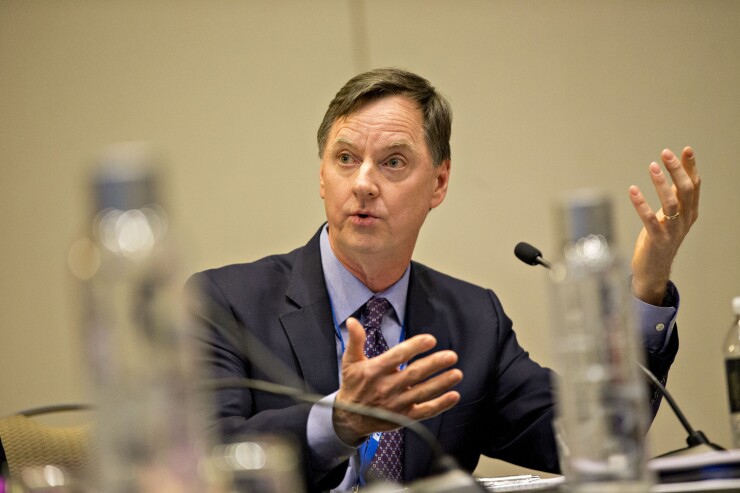The Federal Reserve should continue gradually raising interest rates if data on consumer prices available by the central bank’s mid-June policy meeting indicate inflation will soon reach the 2% target, Chicago Fed President Charles Evans said.
“If the data themselves are at 2%, if they are more consistent with us getting to 2% very soon, then I think that continuing our slow, gradual increases will be appropriate,” Evans said Saturday while speaking to reporters following a talk at the University of Chicago.

“The headwinds that we were facing have turned into tailwinds, fiscal policy has been much, much more supportive of further growth, and so the need for more accommodative monetary policy is less than it was before,” he said.
On Friday, Fed Chairman Jerome Powell backed further gradual interest-rate increases amid strong U.S. economic momentum, while adding that the lack of a spike in wage growth shows the labor market is “not excessively tight.” His remarks were reinforced by comments several hours later by John Williams, who’s currently president of the San Francisco Fed and will become president of the New York Fed in June.
Powell, in his first speech since becoming Fed chairman in February, avoided discussing the turbulent U.S. stock market and also sought to steer clear of the simmering U.S.-China trade dispute.
Evans took a similar tack on Saturday, saying that the economy “benefits tremendously from well understood, stable trading rules and environments,” but that the direct effect from tariffs as currently proposed looked “only relatively small” for the national economy.
Evans voted against the policy-setting Federal Open Market Committee’s rate hike in December, but doesn’t have a vote on the rotating panel this year. Fed officials raised rates again at their March meeting and signaled they would probably support at least two more hikes in 2018.
Inflation, measured by the central bank’s preferred gauge, rose 1.8% in the 12 months through February and has been below the Fed’s 2% target throughout most of the current economic expansion, which started in mid-2009.
Evans said the U.S. economy and labor markets are very strong right now, and that he was pleased labor face participation rates have stopped falling after being in a “downward secular trend” for some time.
He added that he’s been surprised wages haven’t responded more to the strong economy and job market. The U.S. jobless rate in March was reported on Friday at 4.1% for the sixth consecutive month.





